Debora M Primrose Solutions for Chapter: Data-Based and Practical Questions (Neurobiology and Behaviour), Exercise 7: Practice problems for Option A
Debora M Primrose Biology Solutions for Exercise - Debora M Primrose Solutions for Chapter: Data-Based and Practical Questions (Neurobiology and Behaviour), Exercise 7: Practice problems for Option A
Attempt the practice questions on Chapter 12: Data-Based and Practical Questions (Neurobiology and Behaviour), Exercise 7: Practice problems for Option A with hints and solutions to strengthen your understanding. Oxford IB Prepared Biology IB Diploma Programme solutions are prepared by Experienced Embibe Experts.
Questions from Debora M Primrose Solutions for Chapter: Data-Based and Practical Questions (Neurobiology and Behaviour), Exercise 7: Practice problems for Option A with Hints & Solutions
The following is a magnetic resonance image (MRI) of a human brain.
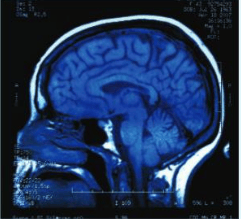
(a) On the image, label the medulla oblongata, cerebellum, hypothalamus and pituitary gland.
The following is a magnetic resonance image (MRI) of a human brain.

(b) Explain how functional MRI can be used to detect the functions of different parts of the brain.
Explain how, in humans, colour in the environment is detected by the eyes and relayed to the brain.
Outline the processes occurring when a person touches a rough surface with their hand and then moves the hand away.
The volume of the left and right nucleus accumbens was measured in tetrahydrocannabinol (THC) consumers and compared with those of control participants who do not consume cannabinoids. The bar graph shows the results of several recordings.
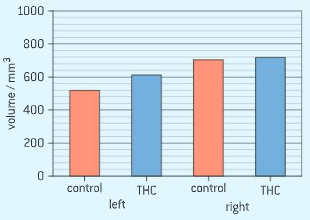
(a) State the mean volume of the left nucleus accumbens in THC consumers.
The volume of the left and right nucleus accumbens was measured in tetrahydrocannabinol (THC) consumers and compared with those of control participants who do not consume cannabinoids. The bar graph shows the results of several recordings.
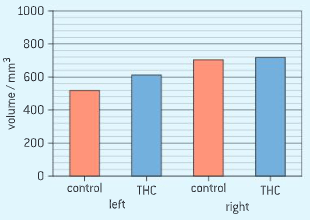
(b) Compare the volume of the accumbens in THC consumers and control participants.
The volume of the left and right nucleus accumbens was measured in tetrahydrocannabinol (THC) consumers and compared with those of control participants who do not consume cannabinoids. The bar graph shows the results of several recordings.
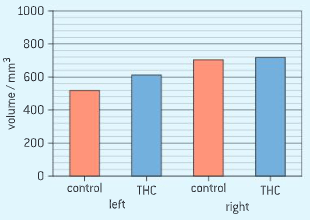
Explain the effect of THC on the nervous system.
Common vampire bats [Desmodus rotundus] feed only on blood and die after 70 h of fasting. Unfed bats often receive food from other bats by regurgitation. The graph shows the changes in weight at the time of feeding compared to the pre-feeding weight $(100 \%)$ of donor and recipient bats before and after blood donation.
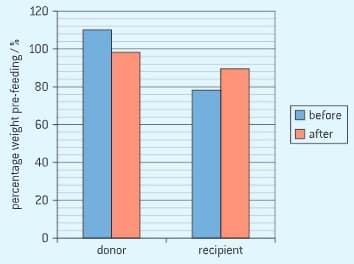
Using the data, explain blood sharing in vampire bats is an example of the development of altruistic behaviour by natural selection.
